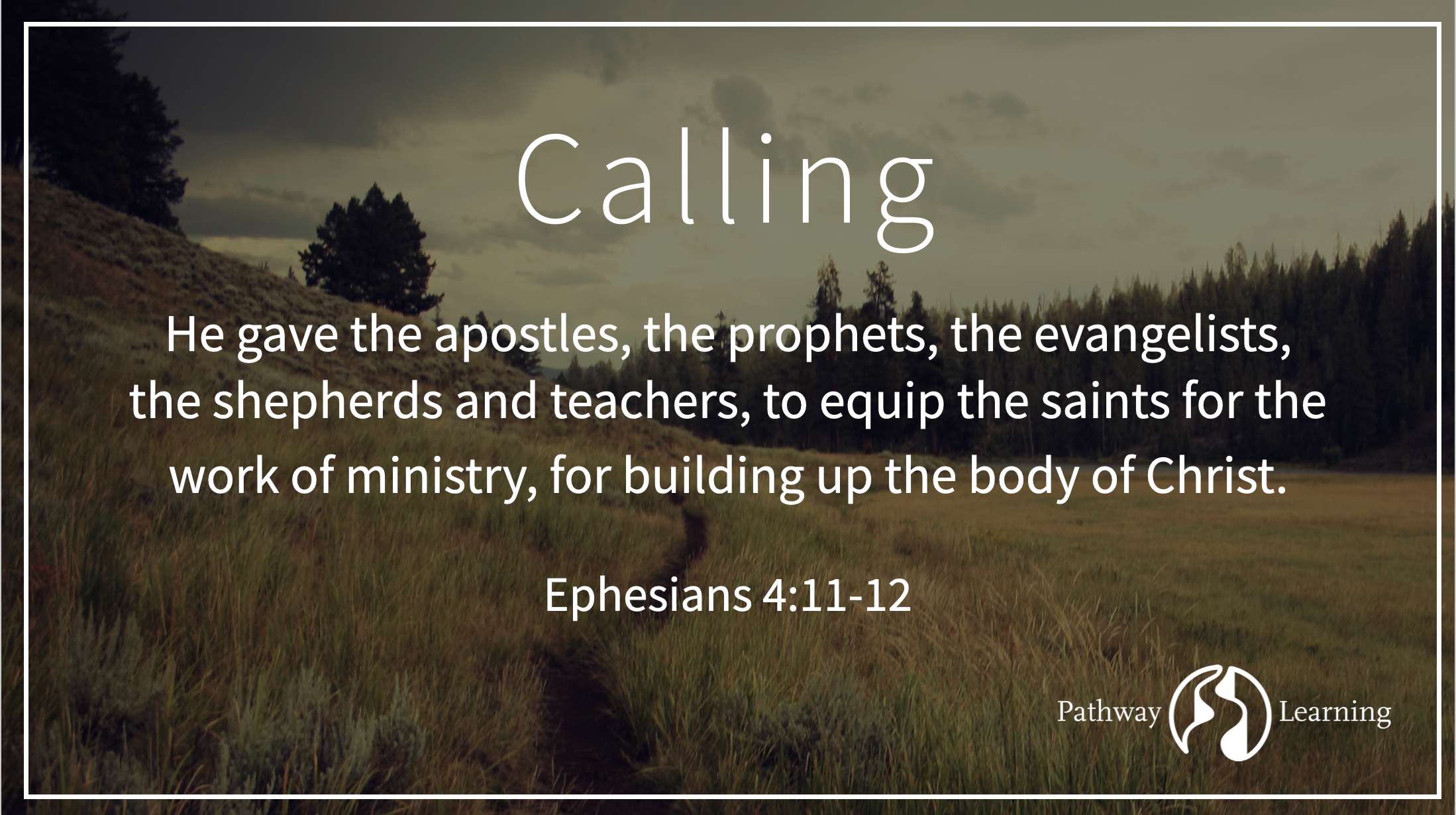Church Leader Calling: Calling, Lesson 3
Series: Calling
Author: Steve Childers
Title: Church Leader Calling
In this session we are seeking to answer the key question: “How can I know I’m called by God to equip followers of Christ for the work of ministry?” So far we’ve laid an important foundation for answering this question by understanding two types of calling from God:
The primary calling of God on all believers is to radically align our life purpose with God’s purposes to see His name glorified and his kingdom come and his will be done on earth as it is in heaven–through his church by the power of his gospel.
The secondary calling refers to what we would today call a believer’s unique work, job, or vocation, including full-time homemakers, through which Christians uniquely fulfill God’s Primary calling during different seasons of their lives.
In this session we’re looking at a very unique group people whom God gives a very specific secondary calling to equip God’s people to do the work of the ministry. Let’s take a look again at our text in Ephesians 4:12-13.
And he (Christ) gave the apostles, the prophets, the evangelists, the shepherds (pastors) and teachers, to equip the saints for the work of ministry, for building up the body of Christ, until we all reach unity in the faith and in the knowledge of the Son of God and become mature, attaining to the whole measure of the fullness of Christ.
In our last session we learned how most people think that clergy are the only ones called to do the work of ministry and lay people are called to support them in that work.
But what we learned here that lay people are the ones called to do the work of ministry and clergy are called to equip and support them in that work.
Note here again the 5 titles or roles God has given for those whom receive this calling:
1) the apostles,
2) the prophets,
3) the evangelists,
4) the shepherds (pastors) and
5) teachers.
We don’t have the time here to discuss the common debates regarding whether or not all these callings or offices are still given today. Some would say the apostles and prophets should be understood as temporary offices through which we received the now completed revelation of God in the Scriptures. And since the Scriptural canon is complete, so are these offices.
Others, who share the same view of God’s completed revelation in the Scriptural canon, believe the callings and offices of the apostles and the prophets continue today, but do so in a way that does not bring us direct revelation from God. Instead the calling of Apostle is seen more like a missionary, who is someone called to be a “Sent One.’ And the Prophet as one uniquely called to the proclamation of God’s completed revelation.
One other common debates is over whether there are 4 or 5 callings here. Some would argue that because of the lack of definite article and conjunction for the Greek word translated teachers, that are there for all the other offices, that this should be seen as only one calling: Pastor (Shepherd)/Teacher. But there is very little debate that there are still people called to be evangelists, pastors (shepherds), and teachers.
There are some other key words used in the New Testament to describe those whom God calls to equip the Saints to do the work of ministry. In 1 Timothy 3:1, Paul writes to his son in the faith, Timothy, “Here is a trustworthy saying: Whoever aspires to be an overseer desires a noble task.” Paul uses the Greek word here Episcopos from which we get the word “Bishop.”
In Titus 3:5-6, we learn that when Paul wrote to his other son in the faith, Titus, he referred to these same church leaders as elders (Titus 3:5-6). Paul uses the Greek word “presbyter.”
In Hebrews 13:17, the writer of the book of Hebrews refers to these same people as “leaders” to whom followers of Christ in the church are to obey and be in submission to because they “keep watch over you as those who must give an account.”
One of the reasons its believed that these should be seen as different terms for the same person is because of how Paul uses the Greek word for Elder and Overseer to describe the same Leaders in Acts 20.
In Acts 20:17 we read that “He called the elders of the church to come to him.” And then in Acts 20:28, Paul says “Pay careful attention to yourselves and to all the flock, in which the Holy Spirit has made you overseers to care for the church of God…”
For the sake of clarity, in this lesson we’re using the word “leader” as found in Hebrews 13:17 as an overarching word that includes leaders who may lead as “Apostle, Prophet, Evangelist, Pastor, Teacher, Overseer, or Elder—and to use titles today--Church Planter, Missionary, etc.”
Those followers of Christ whom God calls to fulfill their primary calling through a unique secondary calling to equip followers of Christ to fulfill their callings.
Choose Your Learning Pathway


